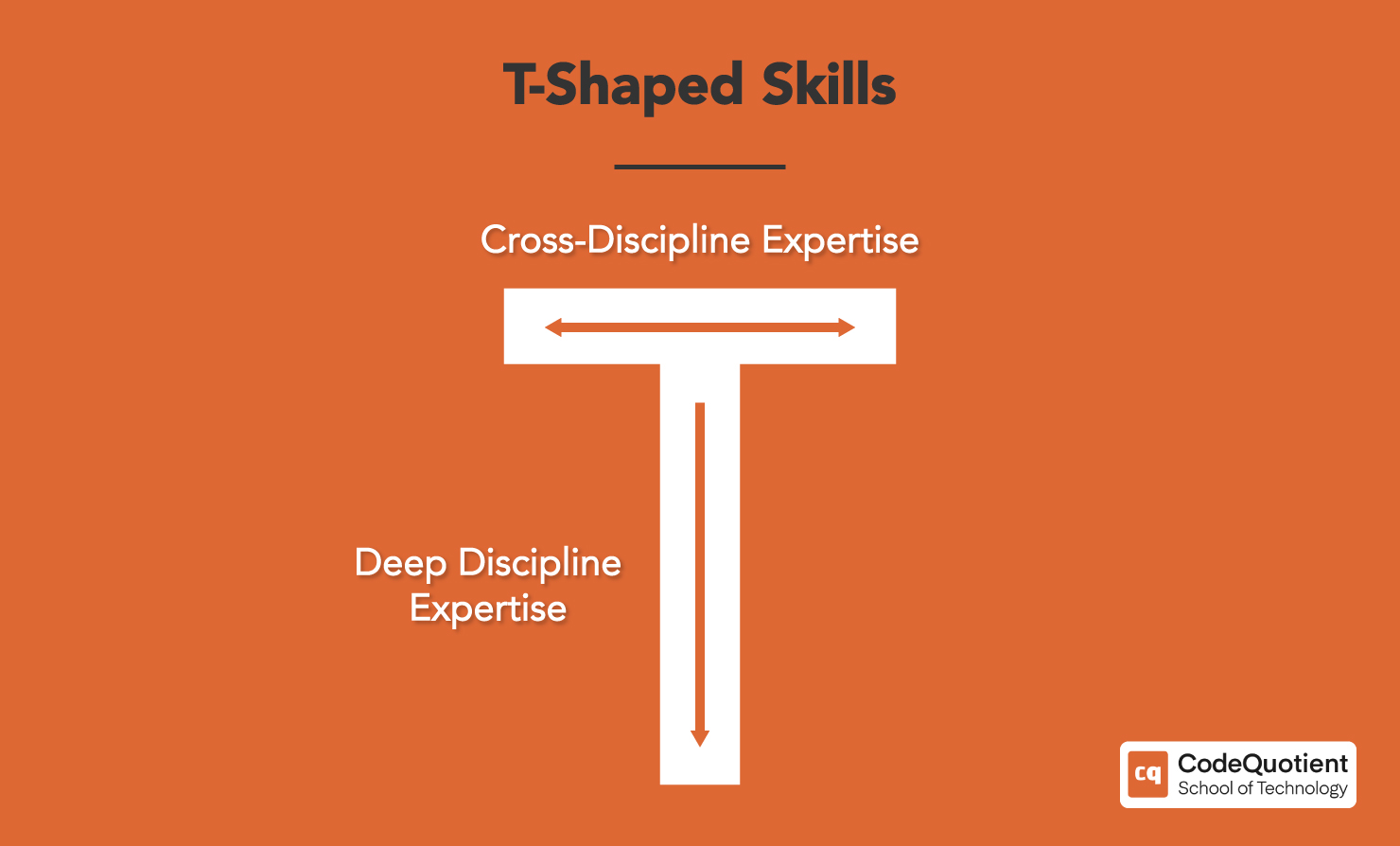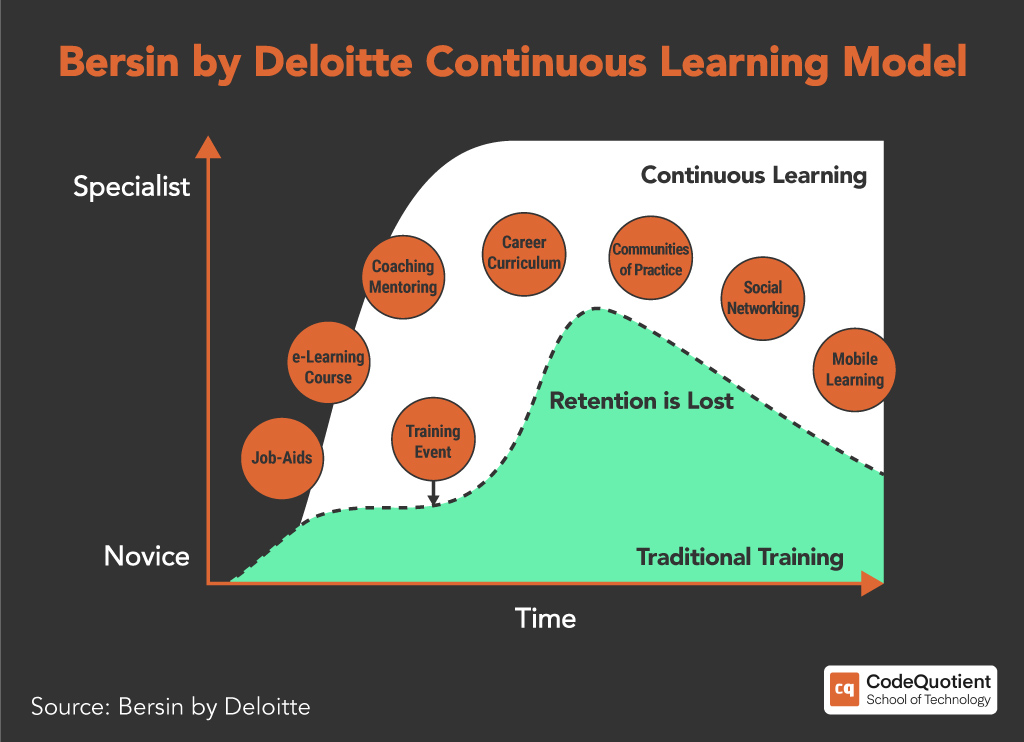Eager for the title but reluctant for the toil — that’s a common scenario I’ve encountered in the tech industry. Professionals often eye the next step up the career ladder with desire, but many falter when faced with the reality of additional responsibilities.
As a founder deeply entrenched in the software engineering world, I understand the allure of a title upgrade. However, I’ve also seen that eagerness often outpaces readiness. My interactions with budding professionals have revealed a stark gap between desire and capability. It’s this very chasm that I believe warrants a deeper discussion. Let’s get into it.
The Paradox of Progress: Desire for Growth Vs. Willingness to Evolve
The paradox where tech professionals desire higher pay but resist new responsibilities isn’t just about ambition; it’s deeply rooted in the comfort of familiarity and fear of the unknown.
At the core, there’s a love for the technical work that initially drew individuals to their roles—a passion for the predictable and the mastered.
However, the industry doesn’t stand still. It demands continuous learning and adaptability, often pushing individuals out of their comfort zones.
“ The resistance stems from a natural human instinct to avoid risk and uncertainty, coupled with a misconception that existing skills will always suffice.”
Moreover, the shift from being an expert in one area to becoming a novice in another is intimidating.
The key to breaking this cycle isn’t just in acquiring new skills but also in shifting mindset. Recognising that growth often comes dressed as a challenge is crucial.
The Inevitable Crossroads of Stagnation vs. Evolution
The tech industry, voracious for innovation, doesn’t pause for anyone. Fresh graduates, eager and adaptable, are continuously entering the field, often willing to undertake roles at a lower cost.
If you’re not evolving, you’re not just standing still; you’re moving backwards. It’s not enough to be a one-dimensional specialist in an industry that prizes multifaceted expertise.
This isn’t about instilling fear but fostering awareness. The key to longevity in tech isn’t just about honing your current skills but expanding them, embracing new challenges, and continually adapting to the shifting landscape.
Solution 1: Embrace Growth
In the face of evolving responsibilities, it’s crucial to view them not as burdens but as gateways to growth.
Embrace new tasks as an opportunity to expand your skill set and demonstrate your potential by leading fresh initiatives. This approach is embodied in the concept of T-shaped expertise.

Imagine a ‘T’: the vertical bar represents your deep knowledge and skills in a specific area, your speciality. The horizontal bar signifies your ability to collaborate across disciplines, applying your skills in diverse contexts.
This blend of depth and breadth makes you incredibly valuable in the tech industry, which thrives on innovation and collaboration. T-shaped professionals are adaptable and able to dive deep into their areas of expertise while also contributing broadly.
Solution 2: Go Beyond Your Comfort Zone
Stepping out of your comfort zone is not just a necessity; it’s an opportunity for exponential growth.
Embracing challenges and new responsibilities might be daunting, but it’s a vital step toward gaining the confidence and competence needed for that next promotion.
To navigate this journey effectively, I advocate for the Growth-Discomfort Framework. This strategy involves three key steps: Recognise, Rationalise, and Realise.
- Recognise: Acknowledge the discomfort associated with new tasks and understand it’s a natural response to growth.
- Rationalise: Analyse the benefits these new challenges bring, not just to your career but to your personal development. Understand that discomfort is temporary, but the skills and confidence gained last much longer.
- Realise: Actively engage with these new tasks, pushing through the initial discomfort. As you do, you’ll notice your comfort zone expanding, and tasks that once seemed daunting will become part of your repertoire.
Strategy 3: Evolve and Learn Continuously
The only way to stay ahead in an industry that never sleeps is to keep learning. Continuous learning isn’t just about keeping up; it’s about constantly pushing the boundaries of your knowledge and skills.
To effectively integrate this into your career path, I recommend the cycle of continuous and reflective learning by Deloitte. It includes the journey from being a novice to becoming a specialist, emphasising the importance of ongoing education and skill development.

- Starting Point: As a novice, your journey begins with foundational job aids and e-learning courses to build the basics of your knowledge.
- Progressive Learning: You then advance through training events and coaching or mentoring, which facilitate the transition from theory to practice.
- Specialisation: As you move toward becoming a specialist, a career curriculum tailored to your path ensures you deepen your expertise.
- Beyond Specialisation: However, the learning doesn’t stop there. To retain what you’ve learned and to continue growing, you must engage with communities of practice, social networking, and mobile learning—tools that keep you at the forefront of your field.
Charting Your Future: Beyond the Here and Now
The path to promotion is paved with more than just ambition; it demands a willingness to embrace change and a commitment to continuous, self-driven learning. Traditional training only takes you so far; it’s the proactive expansion of your abilities that truly propels you forward.
I urge you to adopt a long-term vision, to sometimes forgo short-term comfort for the sake of substantial career growth. Remember, readiness for the next step in your career is a blend of skill, adaptability, and the courage to tackle new challenges head-on. Are you ready to take that step?




